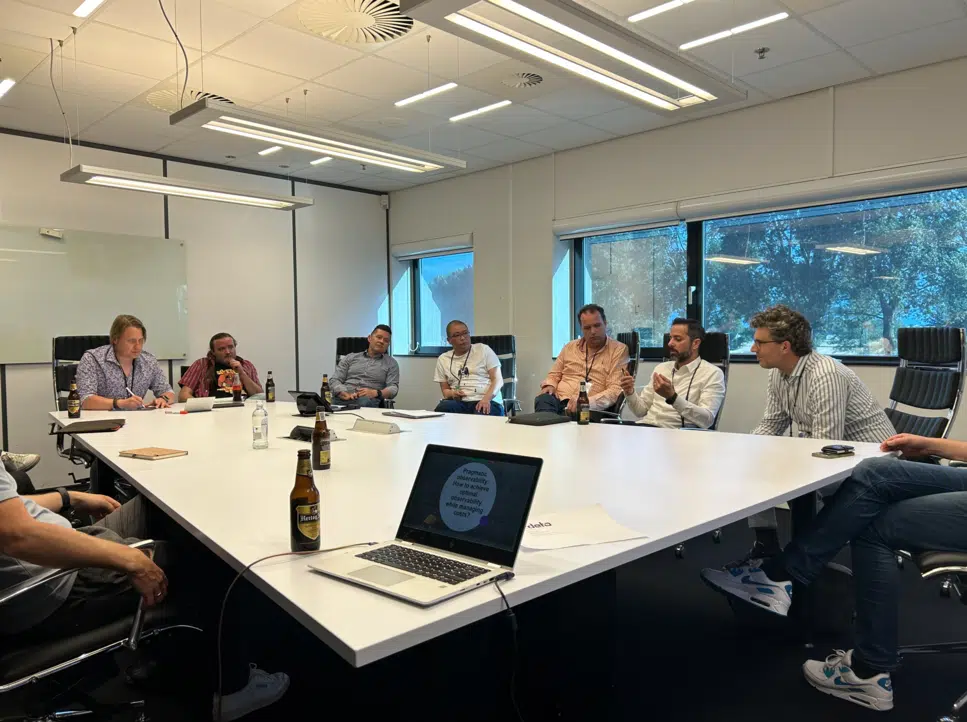In our most recent #TalentQA interview we spoke with Ryan Pearce, Technical Recruiter at social media giant Twitter.
Ryan spoke to us about the benefits and challenges of working in recruitment for a well-known, global brand, the changes he has recognised in the behaviours of tech candidates and how businesses can best react to these changes. As well as offering his advice on how recruiters can keep up-to-date in the ever-changing world of recruitment.
Third Republic (TR): Could you start by telling us a bit about your career in tech recruitment and any changes you have recognised in the industry since your career began?
Ryan Pearce (RP): Before I started my career in recruitment, I was a stockbroker. After a year as a stockbroker, I decided to make a change and moved to Ibiza. When I returned from Ibiza, a friend of mine mentioned that she was looking for someone to join her recruitment agency.
She told me about the day-to-day duties of a recruiter, and I knew I wanted a job where I was talking to people on a regular basis, so I decided to give it a go. After spending time recruiting for marketing analytics roles, I was moved into the software engineering and front-end development space. I was working with startups and broadcasting agencies, which I really enjoyed. However, I wanted to make a change from spending four hours a day on the phone. I joined Talentful where I worked to help companies scale their tech teams.
Working to grow tech teams was an amazing experience and I happened to notice an opportunity at Twitter. Twitter’s mission and values aligned with my own, which I think is vital when choosing the company you’re going to work for. The hiring teams at Twitter are really tight-knit, and although it’s a large company, I feel like I have a say and influence in the work that we do.
TR: You currently work as the Technical Recruiter for Twitter. Could you describe some of the benefits and challenges of working in recruitment for such a well-known brand?
RP: One of the main benefits is, of course, having a great brand name. One thing I’d say that I struggled with as a recruiter in a startup environment was that no matter how good your email is to candidates, it’s difficult to attract quality talent. Working for a large, well-known brand is definitely a benefit when it comes to sourcing top technical talent.
From a challenge perspective, I’d say that it can be difficult to find engineers that have worked at the same pace as the team here at Twitter does. Millions of people come to Twitter every day to find out what’s happening in the world, and in most cases, we’re looking for experienced engineers who can work quickly and navigate different challenges.
While working for a large company has many benefits, it can also prove challenging trying to source candidates who have consistently worked in such a fast-moving environment.
TR: What strategies do you adopt in terms of attracting new technical talent and maintaining the engagement of current employees at Twitter?
RP: Our hiring managers are exceptionally engaged during the hiring process. This is really helpful from the recruiter’s perspective. I’ve worked for companies where managers and recruiters are not in regular contact, and this really can slow down the hiring process.
At Twitter, we have weekly recruitment meetings with several internal teams involved in the hiring process. During these meetings we discuss what we’ve seen in the world of recruitment, tech and social media recently. We share blog posts, reports and whitepapers that may be useful for our wider team.
When I was working in a startup we didn’t have the time to sit down with teams as everything tends to run at 100 miles per hour. Here at Twitter it’s really about the engagement, sharing knowledge and getting to know the teams that your candidates will be working with. We also attend meetups, which are a great way of meeting candidates in a more informal setting.
TR: In your opinion, how important is it for recruiters (internal or agency) to attend networking events when it comes to sourcing and engaging technical talent?
RP: It’s super important. When I was working in an agency, I tried to make sure that I attended at least two meetups a week, both recruitment and industry-specific. You’re definitely missing out if you’re not at networking events at least once per week.
As I said before, it’s a great way to nurture existing relationships and to meet new candidates in an informal setting. You get to know people on a more personal level at meetups because it’s outside of an interview setting. I’ve made a number of placements throughout my career off the back of meetups.
TR: Have you recognised a change in candidate behaviours throughout your time in recruitment?
RP: Absolutely. There are now a lot of groups for tech professionals where they will share everything from salary and benefit information, to anticipated interview questions. Candidates are much more well-informed going into the hiring process than they previously were. There are higher expectations when it comes time to offer employment packages.
TR: In your opinion, how can businesses best react to the changes in candidate behaviours?
RP: In my opinion, the best thing to do is to be as agile as possible during the hiring process. Teams should also have processes in place and set parameters with candidates from the get-go. Feedback and communication are absolutely key to securing top talent. Even if you don’t have all the answers, make sure to take the time to update your candidates on processes and when they can expect to hear from you.
TR: We live in an increasingly digital world; how can recruiters keep up to date with the ever-evolving technology and techniques in the industry?
RP: When I joined Twitter, my knowledge of tech expanded massively. Building a rapport with the teams you’re recruiting into is essential. Get to learn what they’re looking for, what the future employees’ projects will be. This way you can have really detailed and tailored conversations with candidates.
Being a specialist in today’s digital age is essential and it’s really important that you’re able to have solid technical conversations to understand if there’s a cultural and technical fit. Do your research, share market knowledge with candidates so that you can add value in that way.
Attend meetups and subscribe to newsletters, not just for recruitment, but for the industry that you work in. Keep up to date with industry news. If you’re not already, get on Twitter and follow industry thought leaders for relevant updates. Also, make sure that the business you work for is employing the relevant tools to help leverage your success.
TR: Finally, do you think that recruitment agencies can provide value in these competitive, fast-moving markets?
RP: Absolutely, I think agencies have a wider view of the market. They can really offer a deeper insight into market changes, updates and the behaviours of candidates and competitors. It’s important to find agencies that are specialists in specific fields, who are recognising changes in behaviours, and adapting their processes based on this. But overall, yes, I do think agencies can add value to businesses in the current competitive markets.
If you’d like to take part in our #TalentQA series or you’re looking to source technical talent, get in touch with our specialist teams today!




